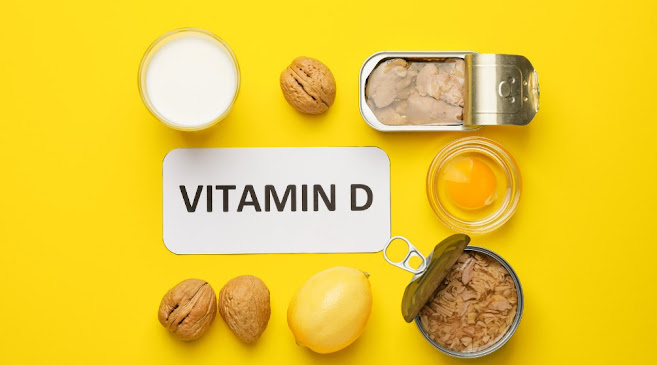The Role of Vitamin D in Bone Health and Best Food Sources
Vitamin
D is paramount in preserving bone health, especially in women. This
indispensable nutrient aids in the absorption of calcium, a key element
necessary for developing and sustaining robust bones. Without adequate vitamin
D, bones can become brittle and prone to fractures. Integrating an energy drink for women that is fortified with
vitamins and minerals can help support bone health, especially when combined
with a diet rich in calcium and other nutrients.
How
Vitamin D Supports Bone Health
Vitamin
D facilitates the absorption of calcium from the digestive tract into the
bloodstream. Once in the bloodstream, calcium can be used to build and maintain
bone tissue. This process ensures that bones remain dense and strong, reducing
the risk of osteoporosis and fractures. Furthermore, vitamin D aids in muscle
function, which is crucial for preserving balance and preventing falls,
particularly in older adults.
Ideal
Sources of Vitamin D
Fortunately,
there are several ways to ensure an adequate intake of vitamin D:
1.
Sunlight: Exposure to sunlight
prompts the skin to produce vitamin D. Just a few minutes outside daily can
markedly boost your vitamin D levels.
2.
Foods: Enhancing your vitamin D
levels can be as simple as including certain foods in your diet. Prime sources
of vitamin D include fatty fish like salmon and mackerel, as well as fortified
dairy products. And egg yolks. For more information, read this blog.
3.
Supplements: In cases where sunlight
exposure and dietary intake are insufficient, vitamin D supplements may be
recommended to ensure proper levels are maintained.
Best Food
Sources for Bone Health
In
addition to vitamin D, other nutrients are essential for maintaining bone
health. Calcium is perhaps the most well-known, but there are other important
vitamins and minerals to consider:
·
Calcium: Critical for the
development and upkeep of bones, calcium is present in dairy items, leafy
greens, and foods enriched with nutrients.
·
Magnesium: Magnesium helps with the
structural development of bone and is found in nuts, seeds, whole grains, and
green leafy vegetables.
·
Vitamin
K:
Important for bone metabolism; vitamin K is found in green leafy vegetables,
meat, and cheese.
·
Phosphorus: Working alongside
calcium, phosphorus helps strengthen bones and teeth with nutrients found in
dairy products. Meat and fish.
Conclusion
Maintaining
bone health requires a holistic approach involving a balanced diet, regular
physical activity, and appropriate vitamin D levels. Combining these efforts
with specialized products like fortified energy drinks can provide an
additional boost, particularly for women. Ensuring the body receives all the
necessary nutrients is key to keeping bones strong and healthy throughout life.
Frequently
Asked Questions
1.
How much vitamin D do adults need daily?
The
recommended daily allowance (RDA) of vitamin D for adults is 600 to 800 IU,
depending on age and gender. It is best to consult a healthcare provider for
personalized advice.
2.
What are the signs of a vitamin D deficiency?
Signs
of vitamin D deficiency encompass bone discomfort, muscular frailty, and a
heightened risk of fractures. In extreme instances, this deficiency can
progress to osteoporosis.
3.
Can vitamin D be obtained from vegetarian sources?
Yes,
vegetarian sources of vitamin D include fortified dairy alternatives, mushrooms
exposed to sunlight, and certain cereals. Supplements are also an excellent
option for vegetarians to meet their daily needs.




Comments
Post a Comment